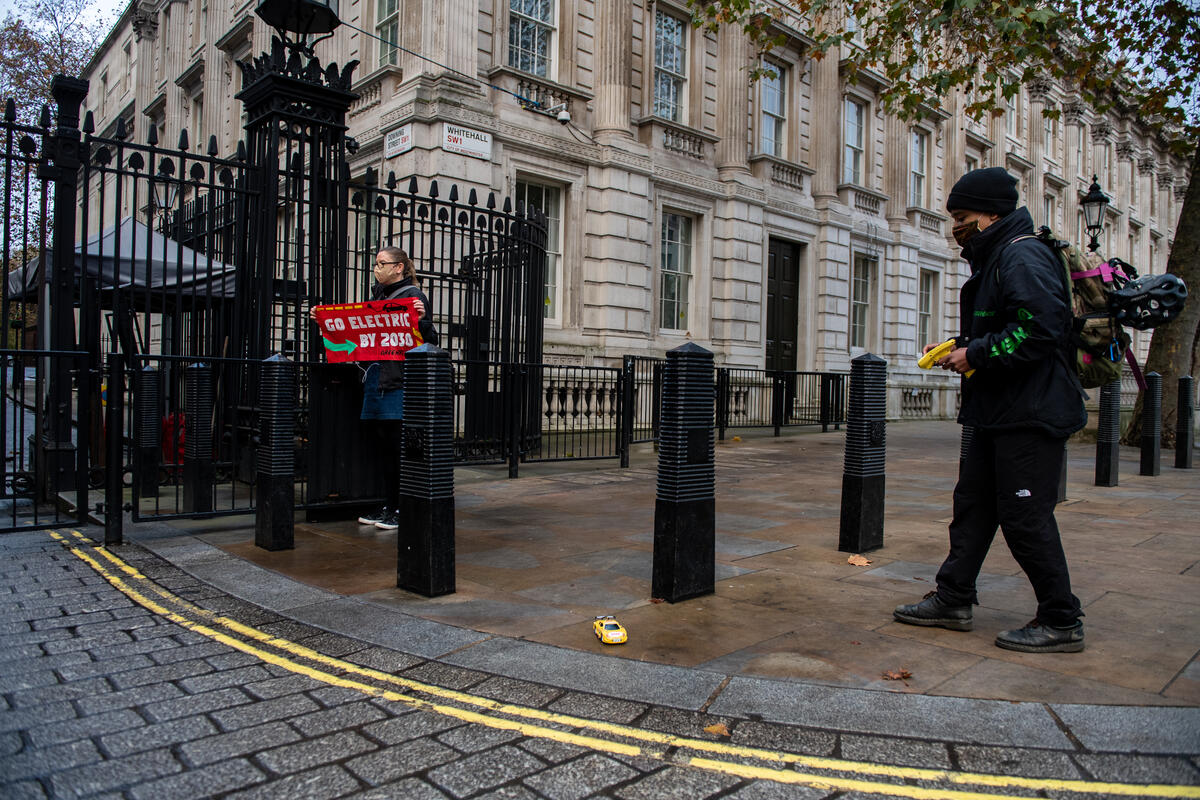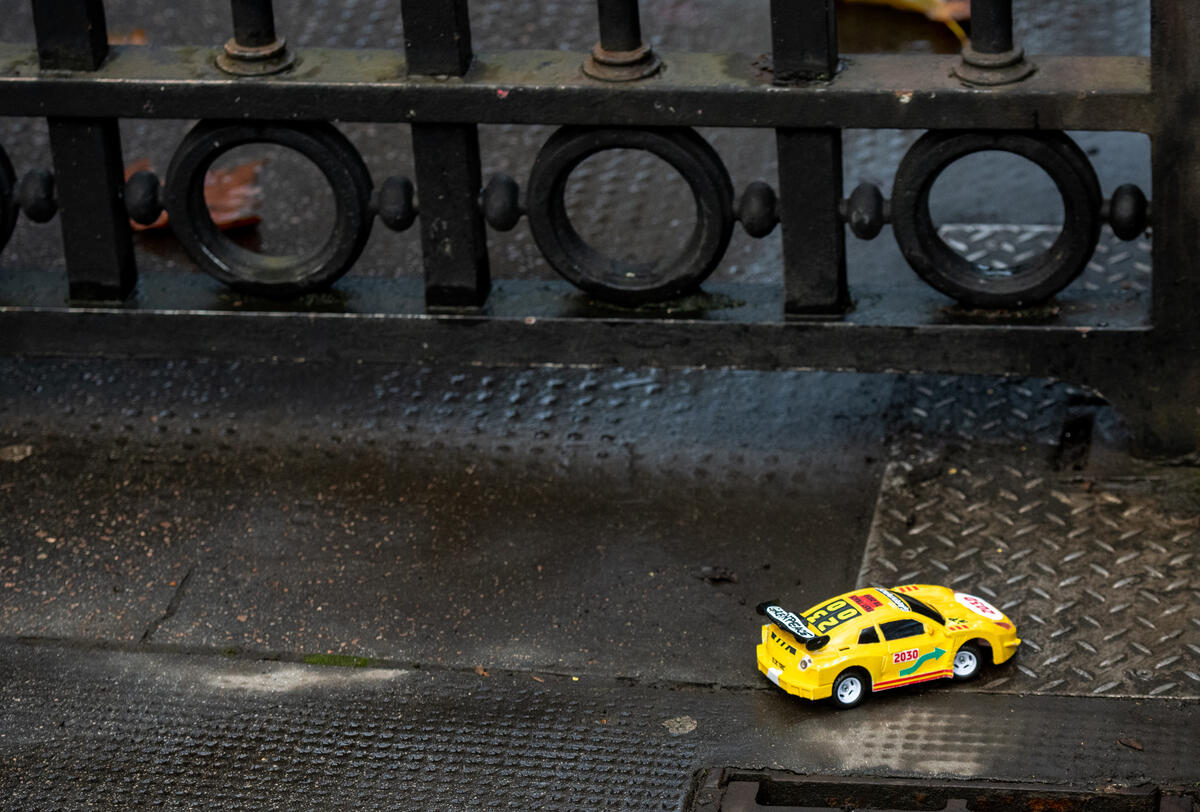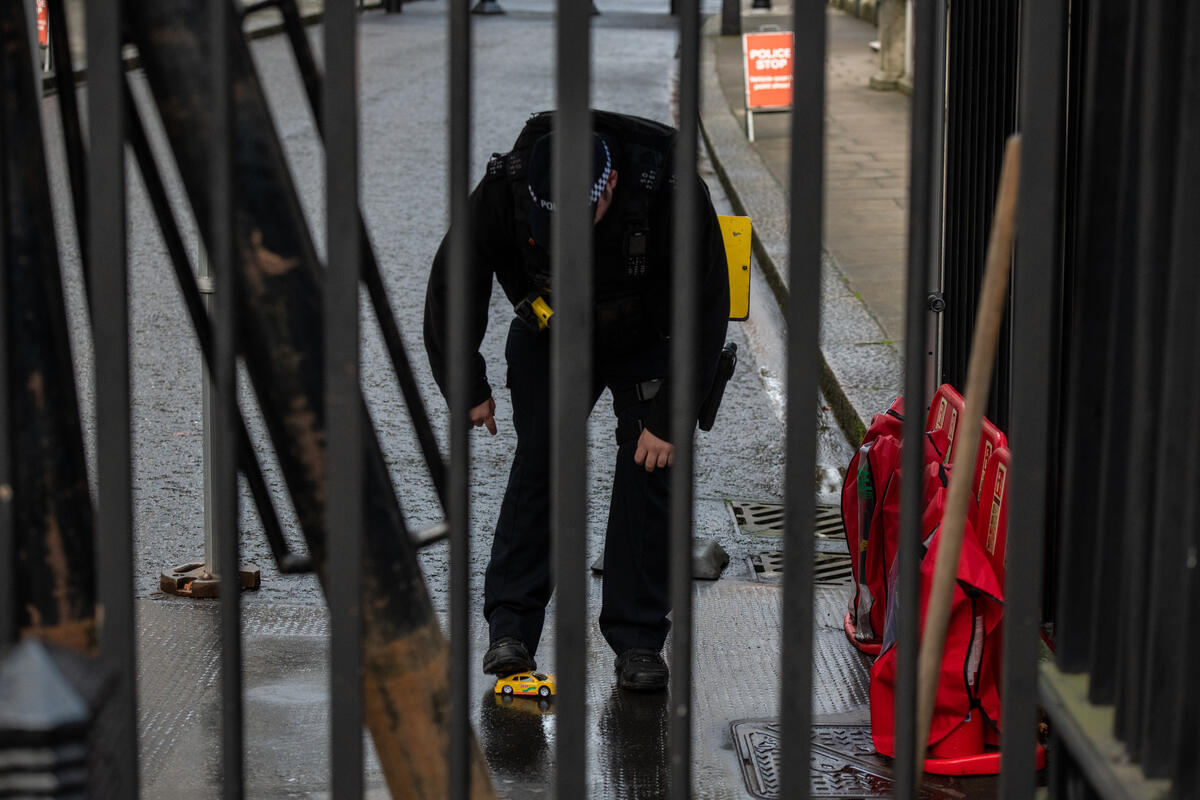Update: 10 days after this protest, the UK government announced it will ban sales of new petrol and diesel cars and vans by 2030 — a full decade earlier than planned. It’s a major win for the climate, and a chance to reimagine our traffic-jammed streets. Learn more here.
Two socially distanced Greenpeace activists sped remote-controlled toy cars under the gates of Downing Street towards Boris Johnson’s front door with a message: we’ll lose the race against the climate crisis unless the government phases out new fossil-fuelled cars and vans by 2030.

Greenpeace activists drove remote-control electric toy cars under the security gates of Downing Street and down towards Number 10 in a demonstration urging the Prime Minister to back a 2030 ban on new petrol, diesel and hybrid vehicles. © Chris J Ratcliffe / Greenpeace
It was a tough mission – one car got stuck under the gates, but our pro driver didn’t give up. He managed to reverse the car out rapidly before whizzing it under and towards Boris’s front door.
In the end, police managed to stop the cars from getting all the way up the street, but with tweets pouring in, Boris Johnson is sure to get the message!
We know Johnson is thinking about announcing a date for phasing out new petrol and diesel cars and vans very soon. The original plan was to do this by 2040, which is way too slow to tackle the climate emergency.
In February, the government said that it would bring forward the ban to 2035, or even earlier. And the message Greenpeace delivered today will remind the prime minister why this matters, and why the ban needs to happen as soon as possible.

The tiny remote controlled car passes under the Downing Street gates. © Chris J Ratcliffe / Greenpeace
Polluting cars and vans are responsible for around one-fifth of all carbon emissions in the UK, and it’s one of the only bits of our carbon footprint that hasn’t fallen in recent years. 2030 is the only date that will reduce those emissions fast enough enough to really help tackle the climate crisis. But the car industry is pushing the government to delay as long as possible. Today, we’re pushing back.
We need to shift to electric cars, and make it easier to go car-free
To cut carbon fast enough, petrol and diesel cars and vans will have to be replaced with electric ones. Even without the UK’s ever-growing supply of renewable energy, electric vehicles are much better for the environment than petrol and diesel.
An early switch to electric transport will be a boost to jobs too. too. A new analysis from Greenpeace and Cambridge Econometrics shows that an early phase out of petrol, diesel and hybrid cars and vans could also open up 31,000 new jobs in the UK.

A police officer traps one of the remote controlled cars with his foot. © Chris J Ratcliffe / Greenpeace
But we can’t just power our cars and vans differently. We need to rethink how we use them, and give people proper alternatives. The government must make it easier for people to get about without a car by reducing road traffic, boosting public transport, and improving walking and cycling infrastructure.
Take action
Even after three years of public and political pressure, with almost 200,000 people, 100 Conservative MPs, the Labour Party, local political leaders, and a wide range of businesses calling for a change, the government still hasn’t committed to phasing out all new petrol and diesel vehicles by 2030.



